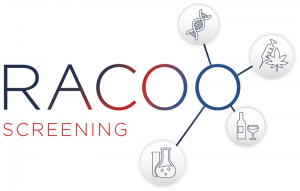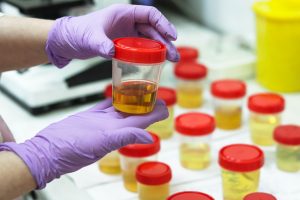Renewable energy drug and alcohol testing
Ensure the safety and compliance of your renewable energy workforce with tailored drug and alcohol testing.
2.7x
more workplace accidents occur due to the consumption of alcohol or drugs [1].
Substance misuse in the renewable energy sector can lead to decreased work efficiency, safety hazards, and potential legal liabilities.
This may look like:
- Increased accidents and injuries: Substance abuse can increase the likelihood of workplace accidents and injuries, which can lead to increased healthcare costs, lost work time, and damage to equipment [2].
- Negative work behaviours: Substance abuse can lead to negative work behaviours such as absenteeism and frequent job changes [2].
- Increased risk of damage to property, machinery, or systems: Substance abuse can cause damage to property, machinery, or systems, which may create unsafe conditions for employees and visitors [2].
- Decreased concentration: Alcoholism in the workplace can cause a lack of concentration and coordination which can lead to accidents [5]. For example, in an Industrial Rope Access Trade Association (IRATA) report, of all the factors involved in rope access accident and incident reports, ‘Failure to recognise and identify hazard(s)’ was the most common [8].
Whether you’re in HR management or part of the wider leadership team in the renewable energy sector, using Racoo’s expertise in drug and alcohol testing can help you identify and address potential issues before they escalate.
Ensure a safe and compliant work environment with Racoo’s renewable energy drug testing

Promote a safe work environment
Testing can deter employees from substance misuse, potentially reducing workplace incidents. Regular screening supports the overall well-being of your workforce.

Maintain an efficient workforce
Random drug testing and pre-employment drug testing can ensure that your team remains focused and efficient, upholding the reputation of your energy and utility company.


Remain compliant with industry standards
Our fully managed drug and alcohol screening service can be tailored to the policies of energy and utility industries, ensuring safety and compliance without the hassle of managing the testing process in-house.
How can drug and alcohol testing support the renewable energy sector?
Testing involves checking employees for substance misuse, either based on specific incidents, suspicions, or as a preventive measure.
Racoo Screening offers various types of drug tests, such as urine drug tests and saliva tests.
Our kits can detect a range of substances, from recreational drugs to prescription medications taken without a valid prescription.
- Fully managed service: So you can focus on core operations
- Tailored to your needs: Bespoke solutions for the renewable energy sector
- Legal and ethical testing: Ensure a safe and compliant work environment
Why partner with Racoo screening?
FAQs
About drug testing in the renewable energy sector
While employees can refuse, there may be consequences outlined in the company’s drug and alcohol policy. It’s essential for companies to communicate the importance of testing and its role in ensuring workplace safety. Learn more about this here.
Yes. IRATA emphasises the importance of safety in rope access work. Given that the most common factor in accidents is the ‘Failure to recognise and identify hazard(s)’ [6], and considering the detrimental effects of alcoholism on concentration and coordination [7], it’s crucial to ensure employees are fit for the task. Therefore, it’s advisable to screen rope access employees to uphold these standards.
The most common types are urine or saliva testing due to their accuracy and affordability. Racoo offers both urine and saliva samples for testing.
The most common type is urine testing due to their accuracy and affordability. Racoo offers both urine and saliva samples for testing.Yes, companies in the UK can conduct drug and alcohol testing, especially following specific incidents or as part of regular checks. The European Workplace Drug Testing Society (EWDTS) states that workplace drug testing in the UK is legal, but not enforceable by law and workers must always consent [REF3].
UK government guidelines stipulate employers must obtain consent for drug testing, typically via a health and safety policy in employment contracts or handbooks. Testing should be limited, random, and not target specific employees unless job-specific or through post-accident drug tests. While workers can decline tests, refusal may lead to disciplinary action if testing grounds are valid. Employers should test for core drug groups like cannabis, cocaine, and opiates [REF4].
Yes, it’s advised for companies to have a clear drug policy that addresses prevention, education, and handling of drug-related incidents. You can learn more about how to create one here.
The frequency of drug and alcohol testing for UK employees in the renewable energy sector is not universally mandated and can vary based on company policy, industry standards, and specific job roles.
However, given the high-risk nature of many tasks in the renewable energy sector, regular testing is advisable. Common practices include:
- Pre-employment Screening: Before an employee starts their role.
- Random Testing: Conducted without prior notice to ensure a drug-free workplace.
- Post-accident Testing: After any workplace incidents to determine if drugs or alcohol were a factor.
- Periodic Testing: At regular intervals, such as annually or bi-annually.
- For-cause Testing: When there’s reasonable suspicion of drug or alcohol use.
Urine drug tests and saliva drug tests are commonly used due to their accuracy and affordability. The choice often depends on the specific substances being tested for and your company’s testing policy.
Racoo prioritises the privacy of individuals and ensures that all test results are confidential, shared only with authorised personnel, and stored securely in compliance with data protection regulations.
The consequences of a positive test result depend on your company’s policy. Common actions include mandatory counselling, suspension, re-testing, or termination, especially if safety is compromised.
Employees have the right to be informed about the testing process, the substances being tested for, and the consequences of positive results. Testing should be conducted fairly, respecting employee rights and privacy.
Companies can collaborate with experts like Racoo to develop a comprehensive policy tailored to their needs, ensuring it aligns with industry standards and legal requirements.
Regular testing could help to promote a drug-free workplace, deter substance misuse, and emphasise the company’s commitment to safety, thereby fostering a culture of responsibility and care.
RESOURCES
Learn more about alcohol and drug testing within the renewable energy sector
references
[1] www.bradfordhealth.com Workplace Accidents and Drug or Alcohol Abuse
[2] www.samhsa.gov Substance use and substance use disorder by industry
[3] www.ewdts.org European Guidelines for Workplace Drug Testing
[4] www.gov.uk Being monitored at work: workers’ rights[5, 7] www.alcoholrehabguide.org Alcoholism In The Workplace[6] www.irata.org International code of practice for industrial rope access
[8] www.linkedin.com IRATA Work and Safety Analysis 2022 identifies hazard identification and risk management, as areas for improvement.





